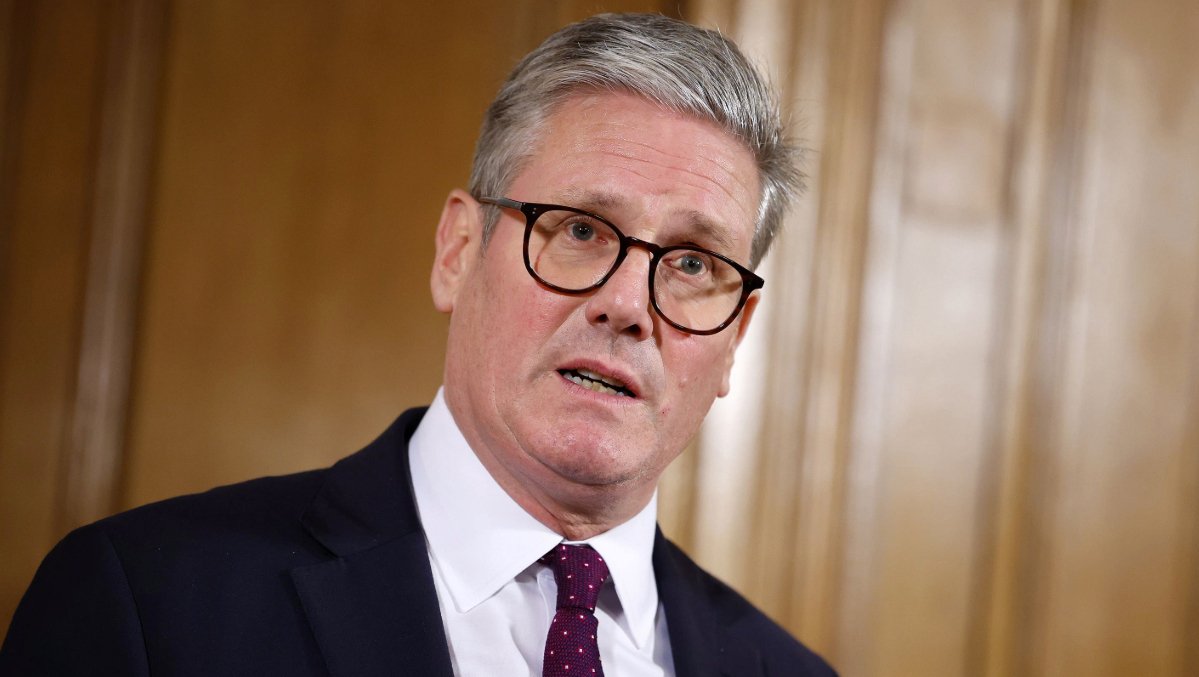The Government has pledged nearly £22bn funding to develop projects to capture and store carbon emissions from energy, industry and hydrogen production.
It is hoped the funding for two “carbon capture clusters” in Merseyside and Teesside, promised over the next 25 years, will create and support thousands of jobs, draw in private investment and help the UK meet climate goals.
Prime Minister Sir Keir Starmer claimed the move was “reigniting our industrial heartlands by investing in the industry of the future”, as he made the announcement with Chancellor Rachel Reeves and Energy Secretary Ed Miliband.
Carbon capture, utilisation and storage (CCUS) is a technology which captures the emissions from burning fuels for energy or from industrial processes such as cement production, and uses or transports them for storage permanently underground – for example, in disused oil fields under the sea.
It is seen by the likes of the International Energy Agency (IEA) and the Climate Change Committee as a key element in meeting targets to cut the greenhouse gases driving dangerous climate change.
It is also a key component in “blue” hydrogen, made from natural gas with the carbon emissions captured and stored to make it “low-carbon”, which can then be used as clean energy in power plants or industrial processes, although environmentalists warn blue hydrogen still requires a reliance on fossil fuels.
While it has long been championed as part of the solution – with Energy and Security and Net Zero Secretary Ed Miliband first announcing plans to develop carbon capture projects for power plants in 2009 during the last Labour government – and it uses well-tested technology, little progress has been made on it in the UK.
Funding of up to £21.7 billion over 25 years focuses on subsidies to three projects in Teesside and Merseyside, once they start capturing carbon from hydrogen, gas power, and energy from waste, to support the development of the clusters, including the infrastructure to transport and store carbon.
The funding will also support the two transport and storage networks which will carry the carbon captured to deep geological storage in Liverpool Bay and the North Sea.
The Government said the move would give industry confidence to invest in the UK, attracting £8 billion of private investment, directly creating 4,000 jobs and supporting 50,000 in the long term.
It will also help remove 8.5 million tonnes of carbon emissions each year, officials said, with the first carbon dioxide being stored from 2028.
It aims to pave the way for the first large scale hydrogen production plant in the UK and helping the oil and gas industry transition to clean energy with a workforce that has transferable skills.
The move has been welcomed by businesses involved in developing the two carbon capture clusters, which are focused on capture and storage of emissions from industrial, hydrogen and energy production.
Independent advisers the Climate Change Committee also welcomed the move, saying the commitment to the necessary technology was “very reassuring”. However, Greenpeace criticised the support for hydrogen from gas as putting the country at risk of “locking ourselves into second-rate solutions”.
Sir Keir said: “For the past 14 years, business has been second-guessing a dysfunctional government – which has set us back and caused an economic slump.
“Today’s announcement will give industry the certainty it needs – committing to 25 years of funding in this ground-breaking technology – to help deliver jobs, kickstart growth, and repair this country once and for all.”
Mr Miliband said: “By securing this investment, we pave the way for securing the clean energy revolution that will rebuild Britain’s industrial heartlands.
“I was proud to kickstart the industry in 2009, and I am even prouder today to turn it into reality.
“This funding is a testament to the power of an active Government working in partnership with businesses to deliver good jobs for our communities.”
And Ms Reeves, said: “This game-changing technology will bring 4,000 good jobs and billions of private investment into communities across Merseyside and Teesside, igniting growth in these industrial heartlands and powering up the rest of the country. ”
Emma Pinchbeck, chief executive of Energy UK described CCUS as a “tool in our armoury of technologies which we need to decarbonise parts of energy that we currently can’t do with clean electricity, such as major industrial processes”.
She said development of CCUS for industrial processes would unlock investment and help areas with a “proud history of engineering and industry pioneer the technologies of the future in the UK”.
And James Richardson, acting chief executive of the Climate Change Committee, said: “It’s fantastic to see funding coming through for these big projects.
“We can’t hit the country’s targets without CCUS so this commitment to it is very reassuring.
“It will no doubt provide comfort to investors and business about the direction of travel for the country.
And he said: “We know these projects will provide good, reliable jobs in communities that need them.
“It is important that prosperity for these parts of the country is built into a clean energy future.”
But Greenpeace UK’s policy director, Doug Parr, said £22bn “is a lot of money to spend on something that is going to extend the life of planet-heating oil and gas production”.
While he acknowledged it was vital the Government commitment to industrial investment and job creation while tackling the climate crisis, “it needs to be the right sort of industries”.
“Carbon capture may be needed for hard to abate sectors, such as cement production; however, hydrogen derived from gas is not low-carbon and there is a risk of locking ourselves into second-rate solutions, especially as the oil industry could easily hoover up most of the money to continue business as usual.”
He called for the bulk of the money to be invested in creating new jobs in sectors such as offshore wind or rolling out a nationwide home insulation programme to cut bills.
The Tories accused Mr Miliband of overseeing a “mass deindustrialisation pathway”.
Shadow energy secretary Claire Coutinho said: “Exceptional local leaders like Ben Houchen have worked on this for years and it’s thanks to the Conservatives that funding was already announced for these projects in the Spring of 2023.
“But whilst this is undoubtedly good news for Carbon Capture jobs, this will not make up for the mass deindustrialisation pathway that Ed Miliband’s costly net zero and energy policies are leading us to, with the devastating impact of his zealotry on jobs already seen in steel-making, refineries and in the North Sea.”
Follow STV News on WhatsApp
Scan the QR code on your mobile device for all the latest news from around the country


 PA Media
PA Media




















